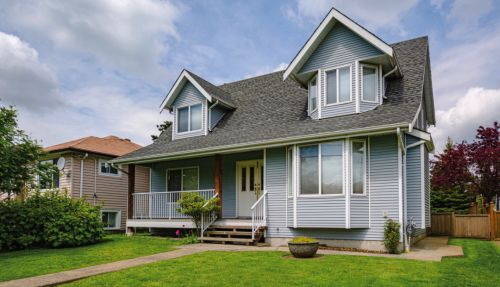All
Heating Fuel Industry Stops an Immediate, Dire Threat

Massachusetts regulators unanimously rejected a building code amendment that would’ve banned heating oil and propane hookups in all newly built or renovated homes statewide
The January/February 2020 issue of Oil & Energy featured a cover story simply titled “BANNED!” The admittedly somewhat sensationalist title was meant to draw attention to a scenario that many in the heating fuel industry might have once considered far-fetched, but which in recent months has become an all-too-real possibility. Local municipalities from Berkley, California to Brookline, Massachusetts have amended building codes to include regulations that outright ban fossil fuel infrastructure in newly constructed or significantly renovated homes.
As similar fossil fuel bans were proposed in other Massachusetts communities, and as Brookline’s amended building code went to State’s Attorney General Maura Healey for review, Oil & Energy spoke with Massachusetts Energy Marketers Association (MEMA) President Michael Ferrante for a feature interview in our June 2020 issue. No sooner than the ink dried on that edition did we receive news that a statewide fossil fuel ban could be coming to Massachusetts.
As MEMA reported in a May 29 email: “MEMA learned yesterday that the Massachusetts Board of Building Regulations & Standards (BBRS) is poised to discuss adopting so-called ‘stretch code’ regulations in the forthcoming edition of the Massachusetts Building Code (780 CMR). These modifications — all of which will need to go before public hearings — would limit, restrict or ban the installation of any fossil fuel infrastructure in new construction or home modifications in favor of electric heat pump and solar technology.”
With Massachusetts in the early stages of reopening the state’s economy, the BBRS was to hold a virtual meeting on June 9 where it would vote on proposed amendments to the state’s latest building code update. One such amendment, a net-zero stretch code sponsored by Lexington-based Northeast Energy Efficiency Partnership (NEEP), would have limited or banned heating oil, propane, and natural gas hookups in all newly constructed or renovated buildings.
Under the Green Communities Act of 2008, Massachusetts is required to update its building code every three years to stay consistent with the energy efficiency requirements of the International Energy Conservation Code. Massachusetts municipalities have the option of adopting either the state’s base energy code, or a stretch code that includes stricter energy efficiency standards. To be clear, not all stretch codes include fossil fuel bans, but the net-zero stretch code NEEP proposed most definitely did.
As the virtual vote approached, MEMA promised to strongly oppose the proposed fossil fuel hookup ban. The association drafted comments in concert with the Propane Gas Association of New England and the Hearth, Patio & Barbecue Association (HPBA). MEMA also directed supporters to an HPBA advocacy webpage, which included a sample letter for industry stakeholders to send building regulators, along with a simple form to submit it. The effort paid off as more than 100 communications were delivered to BBRS, urging them to vote down the fuel ban.
***
Meanwhile, NEFI provided additional support. In a letter to BBRS Chairman Richard Crowley, NEFI President & CEO Sean Cota wrote:
“I am writing in response to the Board of Building Regulations & Standards’ (BBRS) proposal to adopt stretch code regulations in 780 CMR that aim to limit or ban installation of liquid-fuel-fired heating appliances. This proposal will harm small businesses and consumers. Moreover, it will have the unintended effect of banning renewable heating technologies and make it more difficult for Massachusetts and the broader New England region to meet stated greenhouse gas reduction goals.
“NEFI is a non-profit and non-partisan trade association that has represented wholesale and retail liquid heating fuel distributors since 1942. Our members, commonly referred to as ‘fuel dealers,’ are mostly small family-owned and –operated businesses that provide safe and reliable liquid heating fuels and related services to millions of American homes. Today, our industry delivers warmth and comfort to nearly five million homes in the nine-state Northeast, including two million homes in New England. That is about 23 percent and 37 percent of all homes in these regions, respectively.
“Our industry recognizes the importance of climate stewardship and is actively contributing to the region’s ambitious greenhouse gas (GHG) reduction goals. On September 16, 2019, hundreds of fuel dealers from across the Northeast gathered for an industry summit in Providence, Rhode Island. They unanimously approved a resolution to reduce GHG emissions of home heating oil by 15 percent by 2023 and 40 percent by 2030 and deliver a ‘net-zero’ liquid heating fuel to consumers by 2050. NEFI is coordinating with the Massachusetts Energy Marketers Association (MEMA) and other industry stakeholders to develop policy options and pathways for achieving these goals.
“Many of today’s dealers offer ultra-low sulfur heating oil blended with biodiesel and other advanced biofuels. Blends of 20 percent or higher are not uncommon. Often referred to as ‘Bioheat,’ this fuel operates seamlessly in new and existing systems and is proven to dramatically reduce GHG emissions. Unlike expensive heat pump or natural gas conversions, these benefits can be realized at a nominal cost to the consumer. Bioheat also supports farmers and struggling restaurants that supply agricultural byproducts and used-cooking-oil for refining into biodiesel for use in American homes.
“Our Main Street businesses and the thousands of home energy professionals they employ are excited about the promise of renewable Bioheat. We urge the BBRS to abandon efforts that would limit or ban appliances that utilize this fuel. It should instead work with MEMA and local fuel dealers to encourage widespread adoption of Bioheat and, as a result, improve regional climate security.
“Thank you in advance for your consideration.”
***
The liquid heating fuel industry spoke, and Massachusetts regulators listened.
In a June 11 email, MEMA reported that more than 40 association members stepped up to oppose the fossil fuel hookup ban. After receiving more than 120 letters and emails urging rejection of the ban, BBRS members voted unanimously against it.
Instead, BBRS approved revisions to the building code based on current International Energy Conservation Code standards and referred the proposed net-zero stretch code to the Massachsuetts Department of Energy Resources’ Energy Efficiency Advisory Council for further study.
“MEMA wants to thank all those who helped with this effort,” said MEMA President Michael Ferrante, a non-voting member of the advisory council. “More work on this issue is forthcoming and we must be vigilant with our opposition because the Massachusetts House of Representatives will eventually decide if a net-zero stretch code will become law statewide.”
Beyond the threat of a statewide fuel ban, over 210 of all 351 Massachusetts municipalities have adopted a stretch building code. Any one of them could be the next town to ban heating oil or propane hookups in newly built or renovated homes.
Related Posts
 From Retailer to Representative: Chris Keyser’s Road to the Vermont State House
From Retailer to Representative: Chris Keyser’s Road to the Vermont State House
Posted on June 16, 2025
 Northeast Working Group for Industry Principles Gets to Work
Northeast Working Group for Industry Principles Gets to Work
Posted on May 8, 2025
 Trump Policies and Energy Markets
Trump Policies and Energy Markets
Posted on April 28, 2025
 NEFI Introduces the National Home Comfort PAC
NEFI Introduces the National Home Comfort PAC
Posted on April 28, 2025
Enter your email to receive important news and article updates.
